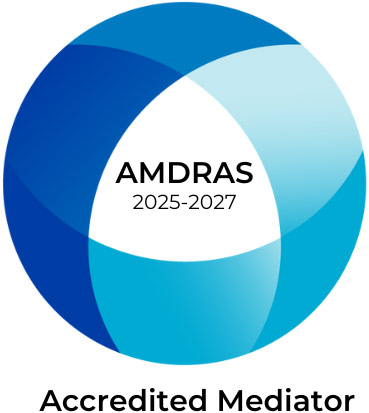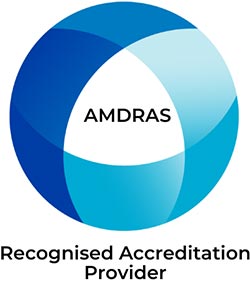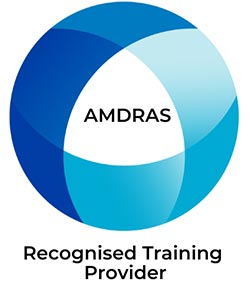For Mediators:
Standards & Mediator Accreditation
Australian Mediator and Dispute Resolution Accreditation Standards
The Australian Mediation Association strongly supports and is committed to the application and implementation of the Australian Mediator and Dispute Resolution Accreditation Standards.
The Association is a Recognised Accreditation Provider (RAP) under the standards and acts to maintain and further develop the national mediation accreditation scheme.
We undertake to have an ongoing role in Standards development and the definition and any extension of the recognition process into the future.
The Australian Mediator and Dispute Resolution Accreditation Standards apply to any person who voluntarily seeks to be accredited under the Australian Mediation Dispute Resolution System (‘the system’) to act as a mediator and assist two or more participants to manage, settle or resolve disputes or to form a future plan of action through a process of mediation.
- Specify requirements for mediators seeking to obtain approval under the voluntary national accreditation system; and
- Define minimum qualifications and training; and
- Assist in informing participants, prospective participants and others what qualifications and competencies can be expected of mediators.
As a condition of ongoing approval, mediators must comply with the Practice Standards and seek re-approval in accordance with the Approval Standards.
The Australian Mediator and Dispute Resolution Accreditation Standards (AMDRAS) can be accessed here.
Approval Requirements for Mediators – Recognised Accreditation Provider (RAP)
As a RAP, the Association’s role in the system is that of the accreditation component of the national mediation accreditation scheme. We aim to ensure that the Standards and scheme operate in an effective, efficient, satisfactory and fair manner.
A mediator manages processes aimed at maximising the participants’ own decision making. The mediator must have personal qualities and appropriate life, social and work experience to conduct the process independently and professionally.
To be accredited, we, as a Recognised Accreditation Provider require a mediator to provide the following:
- evidence of good character; and
- an undertaking to comply with ongoing practice standards and compliance with any legislative and approval requirements; and
- evidence of relevant insurance, statutory indemnity or employee status; and
- evidence of membership or a relationship with an appropriate association or organisation that has appropriate and relevant ethical requirements, complaints and disciplinary processes as well as ongoing professional support; this will include other relevant memberships or relationships; and
- evidence of mediator competence by reference to education, training and experience.
As a condition of ongoing approval, mediators must comply with the Practice Standards and seek re-approval in accordance with the Approval Standards.
Australian Mediator and Dispute Resolution Accreditation Standards (AMDRAS) can be accessed Here.
The form can then be returned to .
Application form for Mediators Seeking Approval under the AMDRAS.
This application is in two parts
- Online Application Form – below; this is for you to complete and submit.
- The Referee’s Reference Form is on the final page of the application; this must be filled out by both your referees and included with your application.
At the bottom of the form you can upload supporting documents. If you have any problems uploading files please email them directly to us via the address displayed at the end of the form.
Applications will not be accepted unless accompanied by payment or proof of payment of the application fee of $250.00 (inc GST). Payment can be made by Electronic Funds Transfer (EFT).
NOTE: This application form should be read in conjunction with both the Approval Standards and the Practice Standards outlined on this page.
Download and complete the Advanced Application Form (.doc).
The form can then be returned to .
Template Download: Continuing Professional Guidelines & Template
The AMDRAS recognises alternative pathways to the Certificate of Training, the Certificate of Assessment, and the Practicum Certificate, based on an applicant’s prior learning and experience.
Please check Part 4 – Training and Accreditation Framework (TAF), Division 8 – Alternative pathways to Certificates and Division 9 – Applications for accreditation of the AMDRAS, HERE.
ISSUING ACCREDITATION – If the RAP considers that the applicant has satisfied the alternative-pathway requirement and has passed any further assessment under Clause 35(b) of AMDRAS, it must issue the requested Certificate or Certificates.
Additional requirements for accreditation – Please check Part 4, Division 9 of the AMDRAS which governs applications for accreditation HERE under AMDRAS.
Read the guidelines for such alternative pathways.
The FDR Practitioners’ Alternative Pathway Protocol recognises the existing qualifications, registration, and practical experience of Family Dispute Resolution Practitioners (FDRPs).
Developed under AMDRAS clause 34(b), this protocol ensures that experienced practitioners can have their existing skills and training formally acknowledged toward the AMDRAS Certificate of Training (COT).
Click here to read more about the Alternative Pathway, allowing recognition of certain prior learning for FDRPs for the Certificate of Training (COT).
If you fulfill ALL of the pre-requisite requirements and wish to apply for this pathway please email any queries and/or submission addressing all relevant experience as per the AMDRAS Standards to
Note: FDRPs obtaining the COT through this pathway are expected to progress to the Certificate of Assessment (COA) to ensure all accredited mediators meet the same baseline competency standards. Some additional training may also be required, depending on your experience and submission.
Guidelines for Leading Mediator Accreditation – The Australian Mediator and Dispute Resolution Accreditation Standards (AMDRAS)
This Guideline provides a guide to enable Registered Practitioners to qualify for accreditation as a Leading Mediator under AMDRAS.
There are two different ways to become a Leading Mediator.
The first way is provided for in section 16(a) of the AMDRAS Standards. This section requires you to have been an accredited mediator for at least 10 years and to have been previously accredited as an Advanced Mediator or equivalent for at least 6 of those 10 years. You can apply to your Recognised Accreditation Provider (RAP) using this process.
- Read through the guidelines and process of application to become accredited as a Leading Mediator.
- Access the Application Form: Application to become a Leading Mediator pursuant to the AMDRAS Standards
If you fulfill ALL of the pre-requisite requirements and wish to apply for Leading Mediator Accreditation please email your application form and submission addressing all relevant experience as per the AMDRAS Standards to
The second way is to apply to the AMDRAS Board through your RAP using s. 16(b) of AMDRAS where you do not meet the specific requirements of s. 16(a). This is equivalent, in some ways, to applying for an “alternative pathway” in relation to achieving accredited and advanced standing using AMDRAS sections 34 and 35.
Because there is no training requirement for becoming a Leading Mediator there is no specified “alternative pathway” and these matters are elevated for consideration to the AMDRAS Board.
As s.16(b) makes clear you need to demonstrate to your RAP and the Board that you have sufficient practice experience and have been engaged in the dispute resolution field in such a way that is equivalent to those requirements outlined in s. 16.




